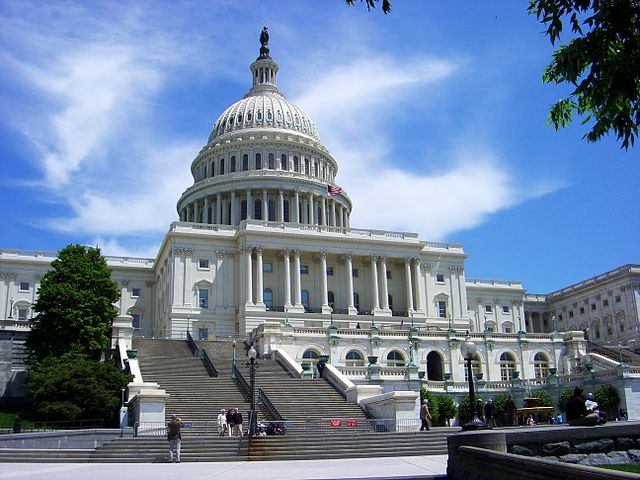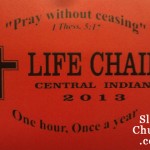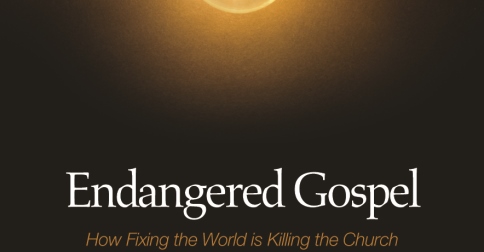
The recent government shutdown, frustrating as it is, should not really come as all that big of a surprise.
In Western culture – and particularly in the United States – we have been cultivating habits for many decades that are dissolving our capacity to talk civilly and live peaceably with our neighbors, and especially our neighbors who differ from us in prominent ways: politics, economic status, race, sexual identity, etc. This history has been chronicled over the last thirty years by important books such as Habits of the Heart by the late Robert Bellah and others, Bowling Alone by Robert Putnam and more recently by Bill Bishop in The Big Sort.
In a similar vein, I have recently finished reading Jane Jacobs’s last book Dark Age Ahead (2004), which enumerates the ways in which she believes that our culture is on a fast track toward self-destruction. In the book’s introduction, Jacobs emphasizes that they defining mark of a dark age is forgetfulness: “During a Dark Age, the mass amnesia of a survivors becomes permanent and profound. The previous way of life slides into an abyss of forgetfulness, almost as decisively as if it had not existed.” There are indeed many things we have lost, or are losing, as a result of the long-nascent fragmentation of individualism: the ability to live healthily and fruitfully in community with others, civil dialogue, etc. Jacobs presciently describes our times: “Cultural xenophobia is a frequent sequel to a society’s decline from cultural vigor. Someone has aptly called self-imposed isolation a fortress mentality. … A fortress or fundamentalist mentality not only shuts itself off from dynamic influences originating outside, but also, as a side effect, ceases influencing the outside world.” Jacobs identifies five “pillars” of North American culture (she was living in Toronto at the time the book was written), that are essential to our culture and in serious decay:
1) Community and Family
2) Higher Education
3) The Effective Practice of Science and Technology
4) Taxes and Governmental Powers in touch with needs and possibilities
5) Self-policing by the Learned Professions
While others might point to other serious issues like “racism, profligate environmental destruction, crime, voters’ distrust of politicians, and the enlarging gulf between rich and poor,” Jacobs suggests that these undoubtedly key fragmentations follow from her primary five above. Despite the ominous title of the book, Jacobs does recognize the possibility that we might with significant attention and energy, be able to avert a dark age.
I also have been haunted recently by Alasdair Macintyre’s famous words from the close of his classic book, After Virtue:
What matters at this stage [in history] is the construction of local forms of community within which civility and the intellectual and moral life can be sustained through the new dark ages which are already upon us. And if the tradition of the virtues was able to survive the horrors of the last dark ages, we are not entirely without grounds for hope. This time however the barbarians are not waiting beyond the frontiers; they have already been governing us for quite some time. And it is our lack of consciousness of this that constitutes part of our predicament. We are waiting not for a Godot, but for another — doubtless very different — St. Benedict.
Macintyre’s words about the barbarians who “have already been governing us for quite some time,” make me chuckle uncomfortably, not only at their timeliness in this government shutdown, but also with the realization that our barbaric leaders in Washington were elected by us, and reflect who we are. Building on Macintyre, I have previously argued that local churches can be communities that either guide the larger culture to avert a dark age, or to survive through one.
My intent in talking about the possibility of a coming dark age is not one of fear-mongering. Jacobs emphasizes the massive inertia of a culture such as that of North America, and I agree with her; many of the fragmentations that have brought us to our current position have been snowballing for decades or even centuries, and thus there’s no sense in getting all worked up about our fate as a culture. But as Wendell Berry has argued in his recently televised interview with Bill Moyers (this segment starts at 24:30), the way out of this mess – dark age or no dark age – is to start living a different way in our own local communities. At its very heart, Slow Church is about challenging and empowering church communities not only to reorient themselves to a different way of being that is attentive to our many fragmentations, but to be catalysts in our neighborhoods, energizing change toward the health and well-being of their communities.
I hope that this government shutdown and the ever-impending possibility of economic default serve to get our attention. Our North American culture is unraveling, but the sort of change we need is not the top-down sort of bandages that Washington can offer (though those might just enable us to limp along until better alternatives emerge), but what we need most is radical transformation (the sort that St. Paul points to in Romans 12, for instance) as individuals, families, churches, neighborhoods, and – to the extent that all of these are transformed – the broader systems that sustain a culture. Such radical transformation, of course, although it might quietly take root in a relatively short time, will take a long time to mature and bear fruit, and likely the length of time will be proportional to the scope of the change (churches or neighborhoods will take longer to change than individuals and states will take longer than neighborhoods, etc.).
We are, in essence, the barbarians at the gates of our North American culture, but the question remains: will we prefer to continue in the barbaric ways that have emerged over the course of the modern age, or will we be converted to a way of life that seeks not to conquer – other humans, land or the mysteries of life – but to live peaceably with all humanity, and especially those who are closest at hand in our faith communities and our neighborhoods?












